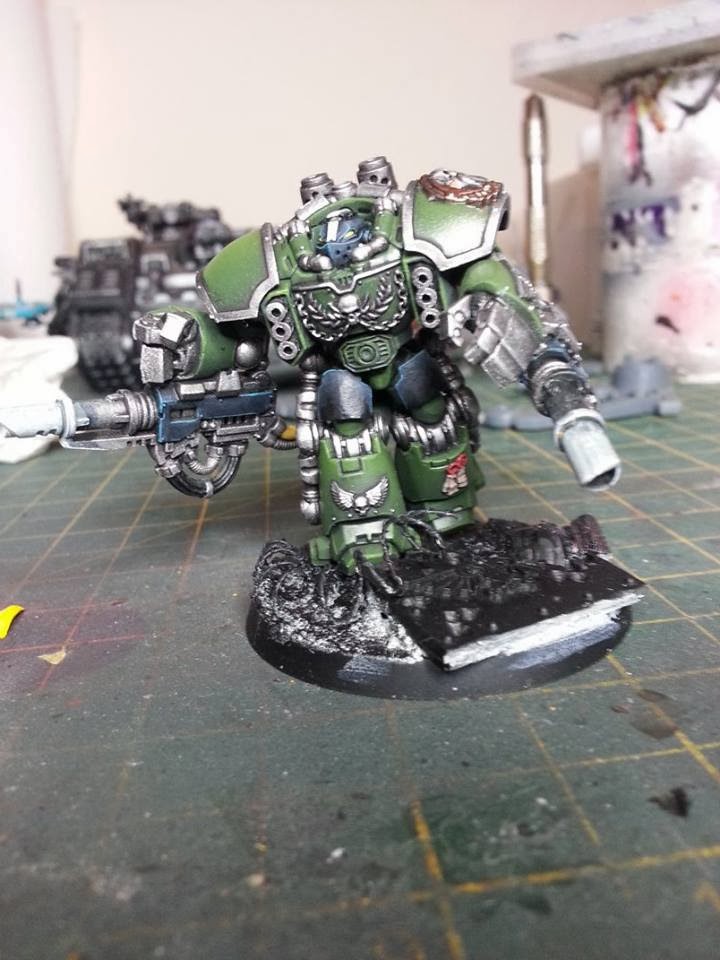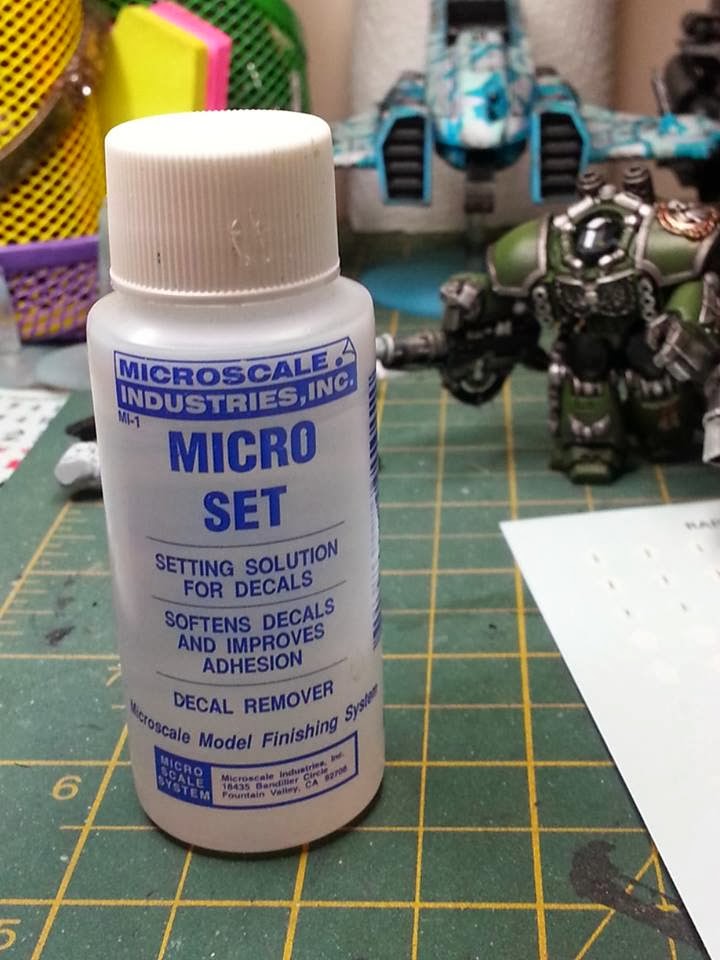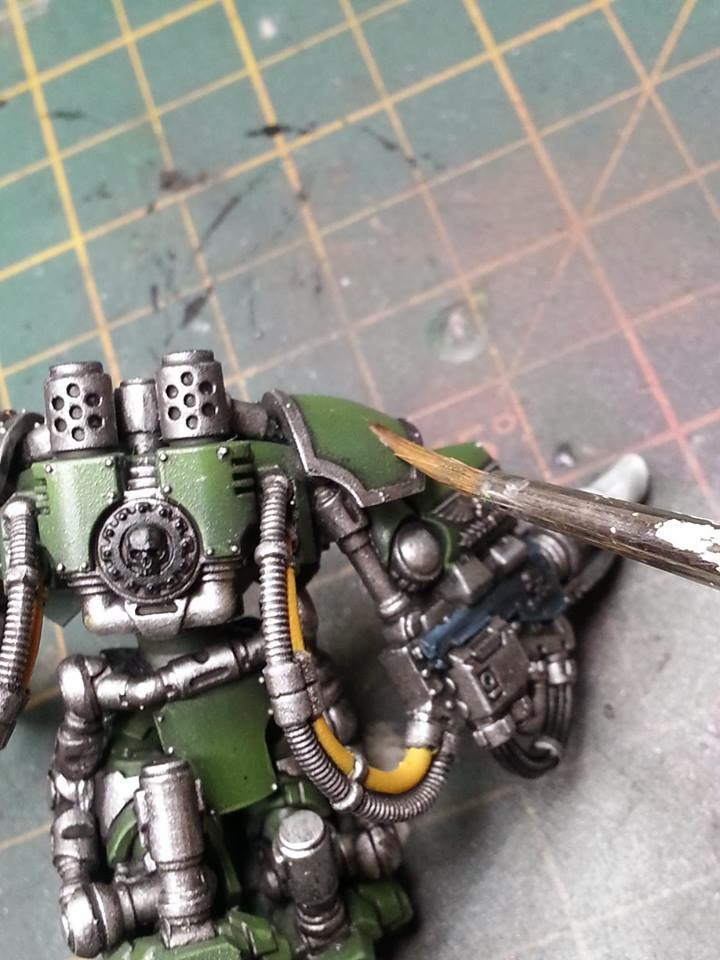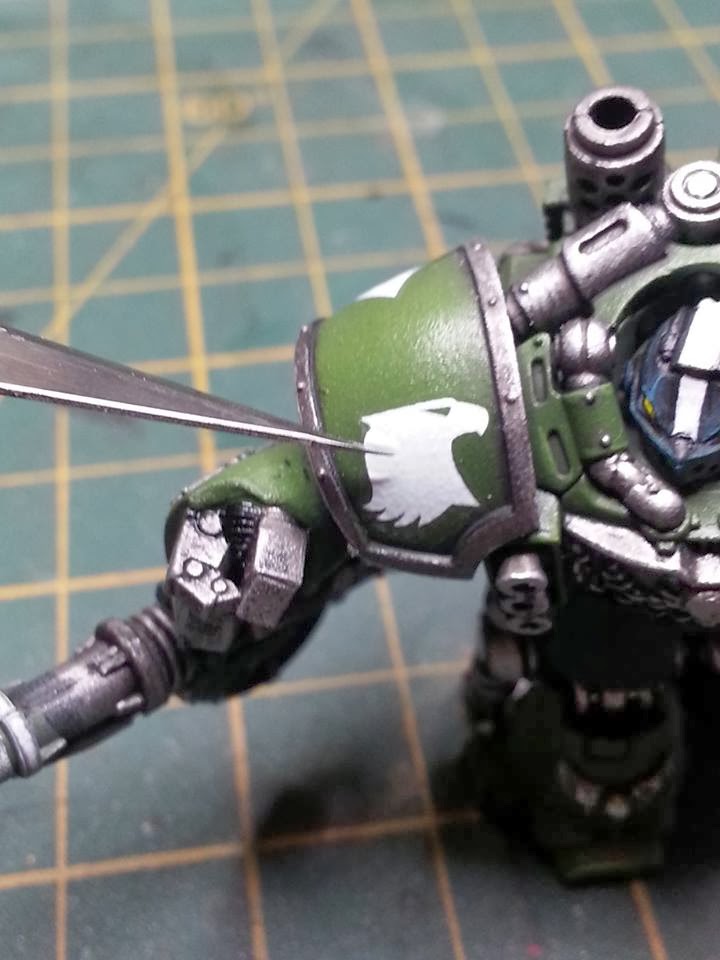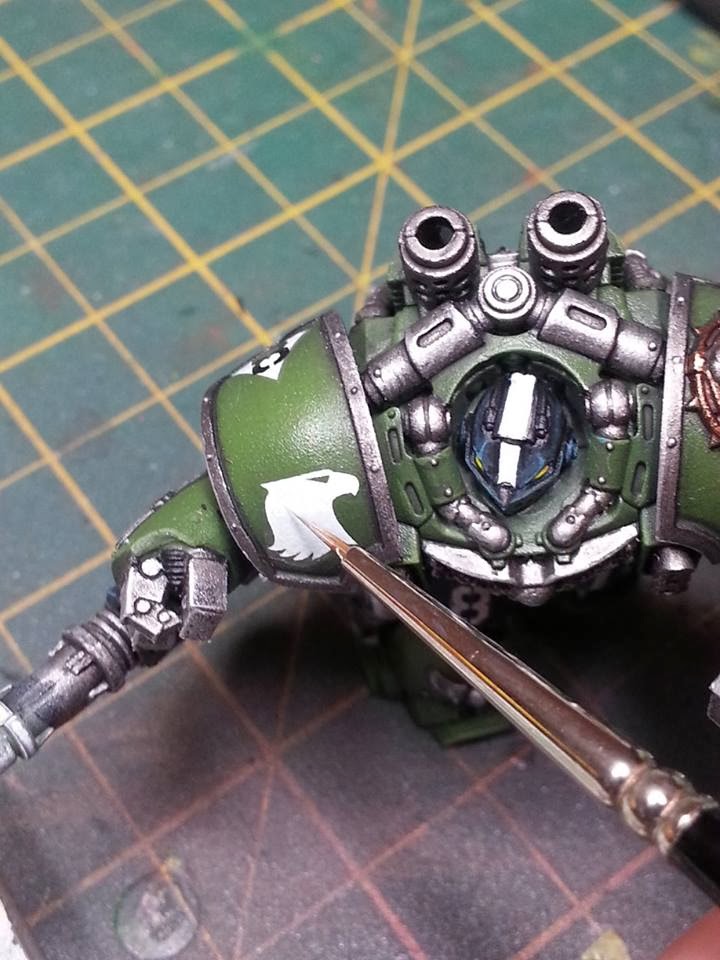An often unused and misunderstood hobby skill is the use of decals. We get decal transfers with every box of 40k but unlike military scale modelers many in our hobby find these quite fiddly to work with. With few steps and the right tools these transfer sheets can add a wealth of detail saving a great deal of time that would be necessary to free hand these shapes.
Read on to see how Joel from PaintMyBits gets decals to look good and sit right on a model.
First up you need to make sure your model is clean of any hair dust or wet paint. This is MEGA important.
Most issues with decals are caused by the glossy halo left around the shapes you are applying. You need to cut the shape out exactly with a scalpel. This then removes this annoying effect. Sometimes the shape is too fiddly and it is impractical so I will address this too. But otherwise cut it out as cleanly as you can shaving as much of this decal flash off as you possibly can.
When this has been done give the decal a soak.
You will need to apply this or a similar solution onto the area the decal is going. Do this while the decal is soaking.
Once it's in position and your happy it looks right take a piece of kitchen roll and press the decal onto the model.
PRESS DO NOT DRAG.
This pressing will eliminate any air underneath the decal and will help with a uniform colour and adhesion.
Once it's been drying for a few minutes give it a sparing coat again with the decal fix.
Now we can cover irregular shapes. You can see the size of the decal on this curved surface is causing a ripple.
Once you have pressed down to get rid of all the air and there are certain ripples that won't go take a scalpel making sure the point is at the inner most start of the ripple and ROLL the blade to the edge of the decal cutting a slit into it.
Dab it down and add a little decal fix again.
Now we have pretty looking and tidy decals don't be afraid to add layers of decals to form more complicated shapes and patterns.
One of the easiest ways to make a decal look more natural is to paint over it. I don't mean a whacking great dollop of your fave GW concoction. Just a well watered down couple of layers. This will also help hide any clumsy scalpel work too.
Once a coat of varnish has been applied as above these decals should blend seamlessly as seen below.
DONE!
But wait.. There's more... We can use other techniques not only to enhance the model but continue to hide the unnatural appearance of these pesky sheets of paper GW plonk in our boxes.
Now you may have noticed a bad edge to the left of the decal? This was left on purpose just to show you how to save any potential moments of panic you may have. Now the first thing I do for this is to simply paint over with the armour colour. Which is exactly what I did. However, what about the lovely airbrushed smooth armour that now has brush strokes over it? Return to BLOODYdice next week to see how I apply weathering on potential problem areas or mistakes.
Thanks to Joel for sharing the secrets of his trade.
Martok

